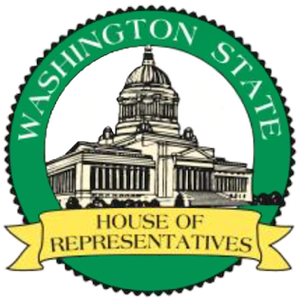The Washington State House of Representatives (WA House) convenes floor sessions to read, debate, amend, and vote on legislation.
Second and Third Reading
- HB 1443 - "Concerning social equity within the cannabis industry."

The Washington State House of Representatives (WA House) convenes floor sessions to read, debate, amend, and vote on legislation.
Legislation to reshape the state’s social equity task force had two of three amendments adopted regarding “interested parties” and the effective date during its successful passage through the House.
Here are some observations from the Tuesday March 2nd Washington State House of Representatives (WA House) afternoon session.
My top 3 takeaways: